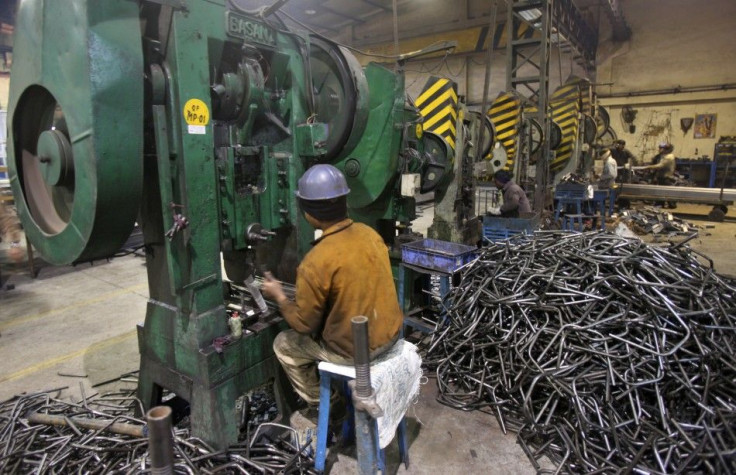Global Manufacturing Slumps On Lingering Euro Zone Debt Crisis

Global manufacturing has extended its decline into the second half of the year, with weakness in Europe and the Asia-Pacific region as the euro zone's debt crisis weighs on numerous economies.
Euro zone purchasing managers index (PMI) numbers, which measure factory output, from Italy, Spain and Greece fell in June for their 11th straight month, Markit Economics said Wednesday.
In Britain, factory output declined from 45.4 to a three-year low of 48.4 in July, according to Markit. Any reading below 50 indicates contraction.
"July's CIPS/Markit report on manufacturing demonstrated that the drag from the euro-zone's debt crisis on the UK's industrial sector is building," Markit said.
The continent's two largest economies, France and Germany, also showed declining PMIs.
A similar picture emerged in Asia, with several reports on Chinese manufacturing worse than expected. Official PMI data released Wednesday by the China Federation of Logistics and Purchasing (CFLP) -- focusing on larger state companies -- showed a slide from 50.2 in June to 50.1 in July.
Capital Economics and Bloomberg News were both expecting a 50.5 reading.
Australia's headline index plunged from 47.2 to 40.3, the lowest in over three years, Markit said. While exports remained weak, it was domestic orders that really brought the Australian numbers down last month.
In South Korea, one month manufacturing numbers shrank the most in seven months, with Taiwan also continuing to contract.
Despite having one of the highest PMIs in the region, India also got off to a slow start this quarter, with factories there showing the sharpest one-month drop in growth since September, said Markit. Severe power outages, which have cut off half of the country's population over the past two days, are also expected to impact results going forward.
Despite the grim news, some analysts saw a reason for optimism in China.
Manufacturing data from both HSBC and Markit that focus on small Chinese businesses showed a slight increase from 48.2 in June to 49.3 last month, its highest level since February, but still down on flash estimates of 49.5 and the ninth straight month below 50. Also, the CFLP's small firm index showed a rise from June's 47.2 to 48.1, noticeably up on May's disappointing 45.2.
"Overall, today's PMIs are still consistent with the view that recent policy stimulus is taking effect. Chinese authorities yesterday reaffirmed that growth will remain their top priority," Capital Economics said in a note. "With further policy support to come, we expect both PMIs to pick up in coming months."
Craig James, an economist at Commsec in Sydney, was also broadly optimistic about the Chinese results.
"The low inflation environment should allow Chinese authorities to provide further stimulus in coming months," he told Fox Business.
© Copyright IBTimes 2025. All rights reserved.





















